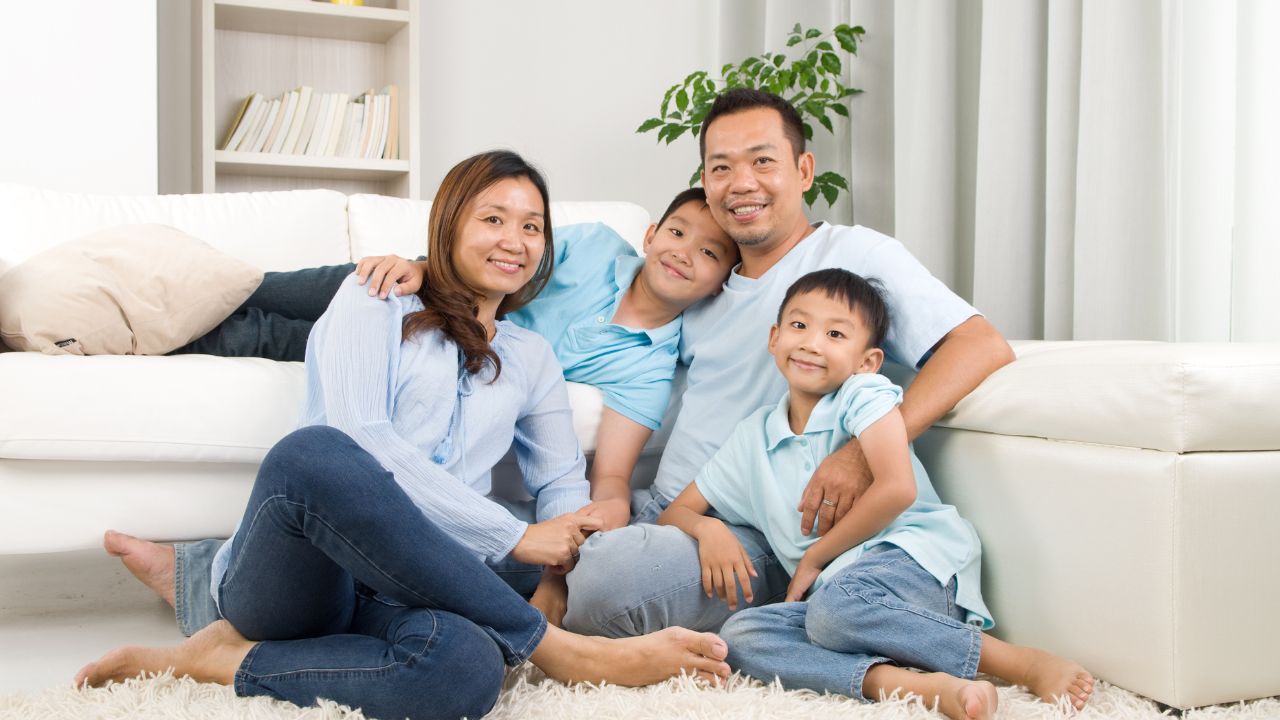Last updated: 09 December 2022
This post discusses the factors that make up the UK Partner or Family Visa accommodation requirement. To qualify for a UK Family Visa under Appendix FM of the Immigration Rules, those applying as partners (including Spouse or Civil Partners) and child dependants must prove that they meet the accommodation requirement for when they join their family members.
This accommodation must not be overcrowded and available for exclusive use by the family, whether rented or owned, without recourse to public funds.
Accommodation requirement for a UK Partner or Family Visa
The ‘adequate accommodation requirement’ requires applicants to prove that the accommodation where they plan to live with their family in the UK will meet the following requirements for a UK family visa application, the accommodation:
- is owned or occupied exclusively by the applicant and their family
- is not, or will not, be overcrowded when the applicant joins their family
- will be obtained without recourse to public funds
- meets the UK public health regulations.
Exclusive occupation
Accommodation is inadequate if it is not owned or legally occupied by the family unit. This does not mean that the property cannot be shared with others. Certain areas of the accommodation can be shared, such as a bathroom, kitchen or living area. ‘Occupy exclusively’ is defined in paragraph 6 of the Immigration Rules and means that at least part of the accommodation must be for the family’s exclusive use.
Applicants must demonstrate that their family unit (including the applicant, sponsor and dependant children) has or will have exclusive use of at least the bedrooms required for the number, age and gender of members of the family unit.
As the Rules require adequate accommodation, which the sponsor and any partner and dependants will occupy for their exclusive use, this need not be a separate house or flat, but where it is as little as one bedroom of their own within the accommodation. For example, the required number of bedrooms for the applicant and sponsor and their dependants may be in a home owned by the sponsor’s parents, and the parents have the exclusive bedroom they occupy.
Evidence of exclusively occupying an accommodation may include mortgage documents, a register of the property’s title, mortgage statements, a letter from the landlord in case of renting or a tenancy agreement.
Where the accommodation is owned or rented by another family member or friend, they should specify their consent to the applicant and their family to occupy their property with a supporting letter. Applicants must also provide evidence confirming that the friend or a family member has the legal right to own or occupy the property.
Accommodation is not adequate if it is, or will be, overcrowded or if it does or will contravene public health regulations.
Overcrowded accommodation
When the provisions under the Housing Act 1985 are breached, the accommodation will be considered overcrowded. An accommodation must conform to a specific room and/or a space standard. The focus is mainly on the number of permitted occupants based on the number of rooms.
The number of people allowed to occupy a room is determined by the size of the room and the occupants’ ages. Under the rules, children under 1 year old are not counted and children between 1 and 10 years old count as half. If two people aged 10 or over of the opposite sex are not a couple, they cannot sleep in the same room.
Only rooms of 50 square feet or more are counted. This is any room that could be used for sleeping and includes living rooms but not a kitchen or bathroom.
No recourse to public funds
An applicant will not be considered as having recourse to public funds simply because they will be relying partly or wholly on their sponsor’s receipt of public funds to satisfy the accommodation requirement. If the sponsor receives certain benefits which they use towards payment of the accommodation, the requirement may still be satisfied. In most cases, applicants will not meet this spouse visa accommodation requirement if their UK-based partner requires more public funds because they will be joining them in the UK.
Public health regulations
Most properly maintained properties will not contravene these regulations. A property may be deemed inadequate where there is mould or structural disrepair, no valid gas safety certificate, an energy efficiency rating below band ‘E’ or any other contravention of the public health regulations.
Compliance can be evidenced by a report from a Chartered Surveyor or the local authority, as well as recent photographs demonstrating that the property is in a good state of repair. The Home Office must be satisfied that your accommodation will be safe and suitable for human habitation.
How to calculate if a property is overcrowded
You must use the table below to compare the number of people with the number of viable bedrooms:
| The floor area of a room | Number of people who can occupy the room |
| 110 sq ft or more | 2 |
| Between 90 sq ft and 109.99 sq ft | 1½ |
| Between 70 sq ft and 89.99 sq ft | 1 |
| Between 50 sq ft and 69.99 sq ft | ½ |
You must use this table to assess the number of people permitted in an accommodation:
| The number of rooms in the property available for sleeping | The number of permitted persons |
| 1 | 2 |
| 2 | 3 |
| 3 | 5 |
| 4 | 7½ |
| 5 or more | 2 for each room |
Example
John lives with his parents and sister in a house owned by his parents. His parents own a five-bedroom property with two reception rooms, a kitchen and a bathroom. John’s wife and 12-year-old daughter wish to join him in the UK. The housing is not overcrowded as two bedrooms are exclusively available for John, his wife and his daughter; two bedrooms are available for his parents and sister.
House in Multiple Occupation (HMO)
A house in multiple occupation (HMO) is defined as ‘a house which is occupied by persons who do not form a single household’. This covers hotels and hostels, as well as houses, lived in by two or more family units or by a couple (and their dependent children) living with the parents or other family members of one of them, such as the example mentioned above.
The definition extends to accommodation lived in by two or more family units, such as a couple living with one of their relatives. The applicant must show that the part of the property they occupy exclusively is adequate. The applicant should provide written confirmation that they are allowed to live there.
It should be noted that local authorities can serve overcrowding notices specifying the number of people allowed in a house.
Documents for the UK Spouse Visa accommodation requirement
The documentary evidence needed to prove that your accommodation is adequate will depend on your circumstances. Generally, this may include the following:
- Property title deeds
- A supporting letter outlining your mortgage arrangements from your bank or building society
- Tenancy agreement and evidence of rent payments
- A supporting letter from a family member or friend providing the accommodation explaining the arrangements agreed upon and confirming their consent for you to live on the property
- A supporting letter from your landlord confirming that rent payments are up to date and that you are allowed to live on the property
- A Property Inspection Report or a housing report from a qualified person (such as members of The Chartered Institute of Housing and The Chartered Institute of Environmental Health)
- A genuine and accurate description of the property from a housing authority, bank, or building society
- Evidence of sufficient living space in a supporting letter
- details of the number of rooms available for sleeping
- details of the people living on the property, including their ages.
How can we help
Our team can provide professional assistance concerning a family visa entry clearance, extension or settlement application. Contact us at 02087575751 or use our contact form.
Frequently asked questions
Yes, if the Home Office deem your accommodation unfit or unsuitable for your family, your application may be refused.
As per Home Office guidance, overcrowding is only allowed if it is:
– due to a new-born child or a child who has just turned one of the specified ages above and alternative accommodation arrangements have not yet been made
– temporary, for example, if a family member comes to live in the home for a short time, or
– licensed overcrowding, where the local authority has given permission.
Under the Immigration Rules, a housing report, also known as a Property Inspection Report, is not a requirement for spouse visa applications.






